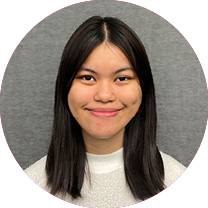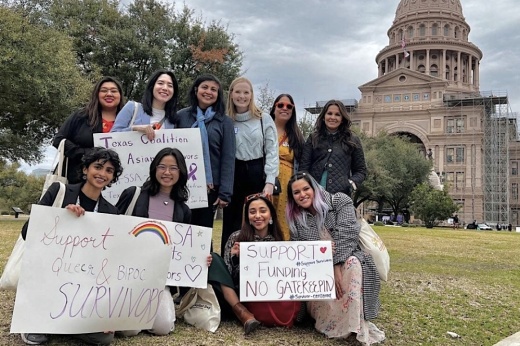AFSSA is an Austin-based nonprofit that helps Asian and immigrant survivors of sexual assault, domestic violence and human trafficking. Primarily funded by government grants, the organization provides services ranging from counseling to providing legal assistance, as well as a confidential hotline in 39 languages that covers eight counties in Central Texas.
The backstory
Last fall, Doan—an AFSSA domestic violence client advocate who chose to not fully identify herself in this article to protect the safety of her clients—saw the need to create a space where survivors with limited English proficiency could fully express themselves in their native language. Vietnamese is the third most commonly spoken language among AFSSA’s clients, according to its 2022 annual impact report. The organization served 237 clients in total that year.
Doan is a survivor herself and leads the Vietnamese peer support group.
“A lot of the clients that come to us don't have that support system, and they often feel alone, especially coming from cultures where they're not able to vocalize these kinds of topics,” Doan said. "Clients of ours find it very beneficial to come together, relate to one another with topics they cannot necessarily share with their family members, friends or community.”
The Vietnamese peer support group usually gathers a group of around five to six people per session, Doan said. To make the meetings more accessible, the program provides virtual options for attendees. Doan said holding these sessions virtually in a smaller group allows attendees to speak about heavier topics, such as domestic violence, without judgment.
“The virtual piece to it really reassured a lot of the clients that have been coming to my sessions that they can remain anonymous and still share what's on their mind and hearts,” Doan said.
A growing need
Rosaline Pillay, AFSSA’s domestic violence team manager, sat in with the peer support group’s first session in March. Pillay said expressing one’s emotions in their own language opens up another level of accessibility since some words do not carry the same weight when translated into English.
“What people usually say is, ‘This is the only hour and a half in my week where I don't have to explain myself,’” Pillay said. “‘I don't have to explain why my husband doesn't live with me [or] why I'm starting again. I don't have to explain anything because in this space, everyone already knows my journey, even if they do not know my specific story.’”
While AFSSA guarantees 12 individual counseling sessions—up to 18—to its clients, Pillay said peer support groups help supplement clients’ journeys toward healing by providing opportunities to share resources and advice peer-to-peer. Pillay said attendees of other support groups have also developed close friendships and kept in contact with each other beyond their meetings, which happen eight times per season.
“There is a desperate need for community. There's a desperate need for people to just hang out. And so, that's what we have seen happened organically,” Pillay said. “It's not part of our program, but it happens through our program.”
How to help
Going forward, Doan said she hopes to expand language accessibility for AFSSA’s other limited English proficiency clients. The Vietnamese-speaking peer support group had its last session of the season in early May.
“I know how important it is for clients to feel included and part of their community,” Doan said. “Right now, it's just the Vietnamese clients, but in the future, that's my goal for AFSSA: to help find more resources and advocates and survivors who are willing to help out with that project.”
AFSSA offers volunteer opportunities in community outreach, direct services, pro bono professional assistance and more. The organization also accepts donations here. Those seeking help and resources can contact their 24-hour hotline at 877-281-8371.





